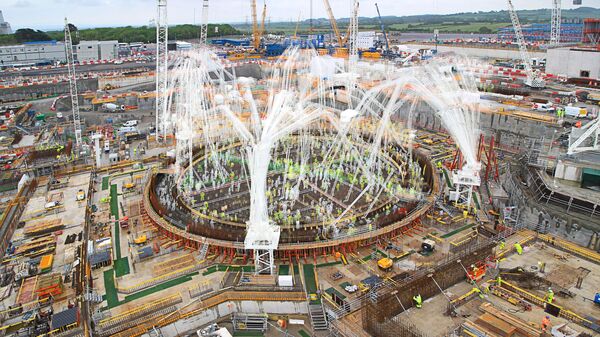A Chinese state-owned energy corporation has offered to construct a second nuclear plant for the UK as Prime Minister Boris Johnson's faces a backlash over China's investment in critical infrastructure.
China General Nuclear Power Group’s (CGN) submitted an application on Wednesday to build the planned new 3.2 GW Sizewell C nuclear plant in Suffolk, England, Sky News reported.
The proposal was also submitted with the company's counterpart EDF Energy, which is owned by the French state and will have an 80 percent stake in the project as opposed to CGN's 20 percent.
Julia Pyke, director of the Sizewell C reactor suggested that CGN's involvement has not yet been determined, despite the project's official Twitter page retaining the company logo.
"CGN is a financial partner for EDF in Hinkley, for Sizewell that's a decision that's going to be made in the future as to whether or not CGN wants to join in the construction phase of Sizewell", she said.
CGN and EDF also teamed up to build Britain’s Hinkley Point C nuclear reactor, work on which started in 2016.
EDF claims that the new reactor will be able to provide "always-on" low-carbon electricity capable of powering six million homes and will create 25,000 jobs and 1,000 apprenticeships throughout the course of construction.
900 skilled jobs during its operating lifetime will also be created and will add resilience to UK domestic production by reducing the need for imports, EDF has said.
— Sizewell C (@sizewellc) April 7, 2020
Separate Standards?
Despite both firms being state-run, Boris Johnson has received criticism from members of his own Conservative Party for allowing further Chinese involvement in UK infrastructure.
“We simply cannot go further down the road of becoming more dependant on China,” said former Tory Party leader Iain Duncan Smith.
“Right now we need to lessen our already excessive dependence on China".
While speaking to the Sydney Morning Herald, he called for a "review" from the "free world" of dealings with China as the COVID-19 Pandemic comes to an end.
“The Sizewell project would be the perfect place to start", he added.
This follows the Prime Minister approving Chinese tech giant Huawei's involvement in Britain’s new 5G network infrastructure, which has seen a backlash from Conservative backbenchers voicing concerns over national security regarding Huawei's' alleged connections to China's ruling Communist Party.
China has rejected accusations that Huawei's involvement in 5G compromises the safety of the country or citizens' personal data and would be willing to sign a "no-spying" agreement with the UK.
A Front for the New Cold War
President Trump was reportedly "apoplectic" with Boris Johnson following the Huawei deal and later indicated in the proposed US-UK post-Brexit trading agreement that it would seek to veto Britain's ability to sign trade deals with "non-market economies", of which China is one.
The United States has been attempting to enlist in the UK in its trade war against China by pushing the government to move further away from allowing Chinese firms access to national infrastructure.
This is part of a bid to end what the Trump Administration describes as China's "cheating" on the global economy while the Chinese government claims that US foreign policy objectives are driven more by a need to stifle global competition than by genuine national security concerns.


